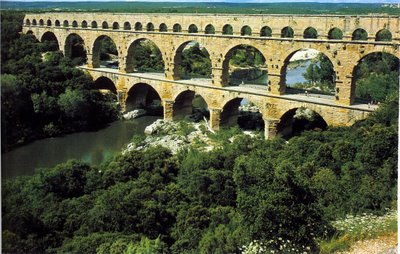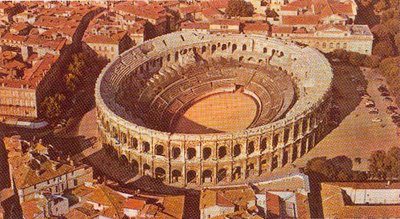The Solemnity of the Most Holy Body and Blood of Christ
Moses sent certain young men of the Israelites
to offer holocausts and sacrifice young bulls
as peace offerings to the LORD.
— Exodus 24:4
Christ entered once for all into the sanctuary,
not with the blood of goats and calves
but with his own blood, thus obtaining eternal redemption.
— Hebrews 9:12
This is my body.
This is my blood.
— Mark 14:22,24
The Solemnity of Corpus Christi, on the calendar since the 13th century, was renamed the Most Holy Body and Blood of Christ in 1970. It is observed on the Thursday (compare Holy Thursday), or on the Sunday, after Pentecost. In it the Church, whose birthday is on Pentecost, remembers Christ’s words of Holy Thursday and celebrates the real presence of the Risen Lord in the Eucharist.
The Church teaches in the catechism and other documents the meaning of “real presence.” Catholics see bread, they see wine. The bread is the body and blood of Christ, and the wine is the body and blood of Christ.
You don’t see? Yes, I don’t see: I believe.
It seems entirely fitting that the visionary saint who did see Christ and who heard Him tell her to work for the feast did not see the feast established:
Saint Juliana of Mont-Cornillon, near Liège in Belgium (1192–1257) . . . had a revelation instructing her to work for the establishment of a feast in honor of the Blessed Sacrament, but she did not present this instruction to theologians for almost twenty years. She encountered only opposition and persecution with her attempts to reform the convent where she served as superior. Eventually she had to leave and wandered for twenty years until her death. Only long after her death did her revelations get any real hearing, because a priest whom she knew in Liège became Pope Urban IV. The Feast of Corpus Christi was finally celebrated [1264] in the universal Church [over fifty] years after Saint Juliana had her [first] revelation.
— Benedict Groeschel, A Still, Small Voice: A Practical Guide on Reported Revelations (San Francisco, Ignatius Press, 1993), pp. 112–113.
And we who believe in the real presence, how do we act? Henry Hardinge Menzies, an architect, tells a story:
A Protestant was visiting a Catholic church accompanied by his Catholic friend, and after entering, he was admiring the beauty of the architecture and decorations. He was particularly impressed with the altar and the tabernacle on top which was surrounded by angels and many candles. He asked his Catholic friend, “And what’s in that box there on the table?” The Catholic replied, “Jesus Christ himself is really present in that box. Our faith tells us that.” There was stunned silence. Finally the Protestant said, “If I believed that, I would crawl down this aisle on my knees!”
— Henry Hardinge Menzes, God in a Box
Some Catholics do crawl on their knees before the Real Presence, many adore, and some have ecstasies. When the apostles saw the resurrected Christ, they worshipped him, though some doubted (Matthew 28:17). But he had commanded them to eat his flesh and drink his blood. After Christ rose and the disciples recognized him, they: spoke with him, swam to him, ate with him, followed him; and being assured, “I am with you always, even unto the end of the world,” and receiving the Holy Spirit, they went, and taught all nations, baptizing them in the name of the Father, and of the Son, and of the Holy Spirit, and prayed, and broke bread together. There is not one posture before the Lord.
And what if we saw Christ, what then?
Fr. Groeschel’s book, cited above, quotes a poem of Longfellow’s
in which a monk in his cell sees Christ,
Then amid his exaltation,
Loud the convent bell appalling,
From its belfry calling, calling,
Rang through court and corridor
With persistent iteration
He had never heard before.
It was now the appointed hour
When alike in shine or shower,
Winter’s cold or summer’s heat,
To the convent portals came
All the blind and halt and lame,
All the beggars of the street,
For their daily dole of food
Dealt them by the brotherhood;
And their almoner was he
Who upon his bended knee,
Rapt in silent ecstasy
Of divinest self-surrender,
Saw the Vision and the Splendor.
Deep distress and hesitation
Mingled with his adoration;
Should he go, or should he stay?
Should he leave the poor to wait
Hungry at the convent gate,
Till the Vision passed away?
Should he slight his radiant guest,
Slight this visitant celestial,
For a crowd of ragged, bestial
Beggars at the convent gate?
Would the Vision there remain?
Would the Vision come again?
and leaves Christ to do his duty as almoner. When he returns to his cell he finds Christ waiting for him. Christ tells him:
“Hadst thou stayed, I must have fled!”
Blessed are they who have not seen and have believed.
Thus endeth this blog. For more in this vein, read Memorare. Amen




